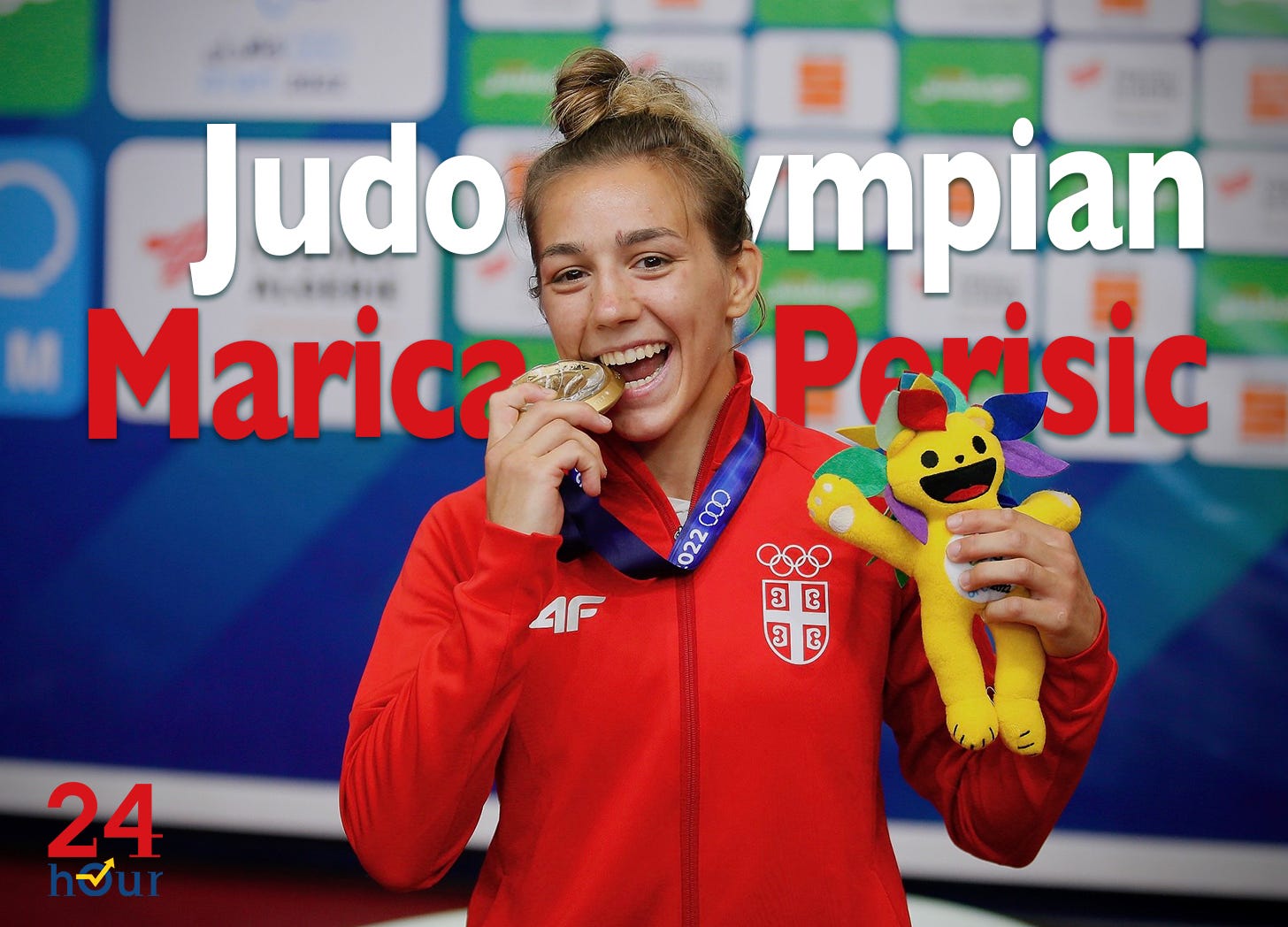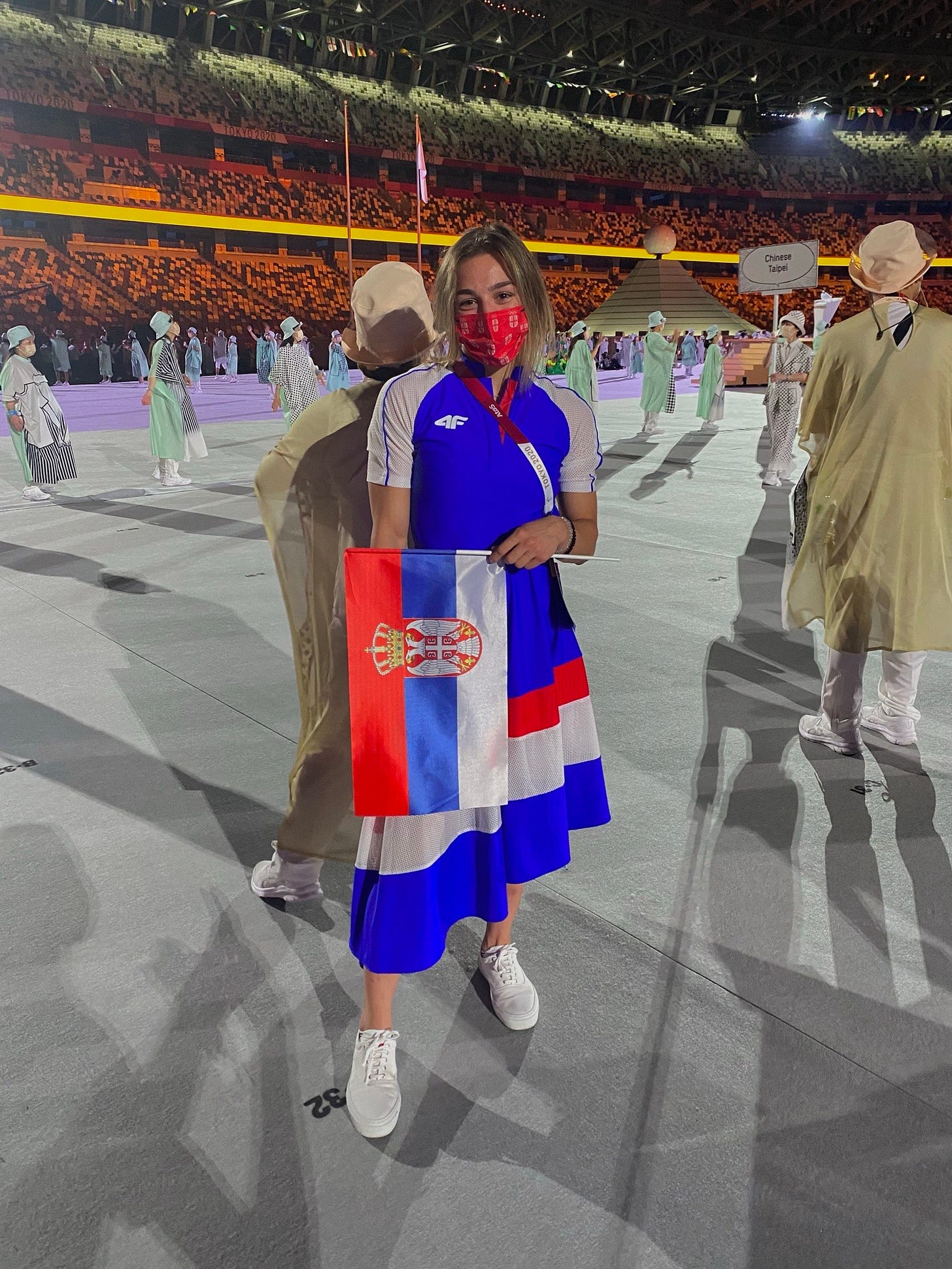Transitioning from Olympian to Non-Olympian: Marica Perisic on the Road to Paris 2024
My primary goal is to graduate from the faculty and start my master's studies after the Paris Olympics, which is an essential step in my plans for the future.
Highlights
Learn about the intricate process of qualifying for the Olympics in judo.
Discover the transformative impact of participating in the Olympics on Marica's career and personal development.
Gain insights into Marica's plans for higher education and envisioning a career outside of professional judo, showcasing the multifaceted journey of athletes beyond sports.
Being a woman in sports is no walk in the park. Being a woman in judo… now, that’s a whole different dimension. Ever since childhood, she has faced looks of disapproval and a lack of understanding for her path. Judo, being a grueling, relentless, male-dominated discipline, wasn’t something the society imagined for a young girl. Luckily for her, Marica had flesh-and-blood proof of female excellence in judo - her mother, who has been involved in it for over two decades. The word fighter gets a whole new meaning when you’re not just going up against your opponent - but the society armed with prejudice.
Against all odds, Marica quickly became Serbia’s golden child with impressive stats: 1x Mediterranean champion, 2x Grand Prix champion, 1x Grand Slam champion (plus three bronze medals), and 1x European Championship gold medalist, with two bronze and one silver medal. A true warrior on and off the mat, Marica is the epitome of unwavering spirit; an athlete who turns defeats into lessons and doesn’t let victories change her. Amid her chaotic preparations for the Paris 2024 Olympics, Marica was kind enough to share her insights on the qualification process and thoughts on the transition from Olympian to non-Olympian, including her personal plans.
Q: Is the preparation process for the Olympics any different than preparing for other tournaments, and if so, what is the main difference? Are there factors that make this process more challenging or complex?
A: As someone who has participated in the Olympics and has been competing on the international scene for over a decade, including Euro and World championships, Grand Slams, Grand Prix, Masters tournaments, and World Cups, I can confidently say that there is a difference. You may wonder why I’ve mentioned all of these competitions. Often, people find it hard to see past our kimonos and belts and understand that there’s much more to judo than just tackling someone.
The Olympic Games are something special - but not that special at the same time. It is hard to understand this statement, but I’ll try simplifying it. In general, the Olympic Games cycle lasts for four years. In judo, during these four years, the competitors are collecting points for the World ranking list and the Olympic ranking list, which allows you to become the seeded/the leader of the group (of the first eight) in the competition, whereas the remaining competitors are categorized in groups (1-8/2-7/ 3-6/ 4-5 - and the group leaders meet in groups A, B, C, and D).
The competitors that remain go through a random, automatized classification. Therefore, the ranking lists I mentioned are critical when qualifying for the OG since, in judo, you’re basically gathering the points until June. For instance, the final selection for the Paris 2024 won’t be determined until June, when only the first 18 contestants will qualify for the Games. There are also five continental norms that need to be fulfilled, but they’re not as vital since they’re a matter of luck and location.
The fact that only the first 18 contestants qualify for the games speaks in favor of how complex the process is and how important it is to stay consistent throughout the years until the very end of the qualification process - right before the Olympics. The top 18 athletes from all over the globe who make it to the Games represent the best that judo has to offer - and the competition is fierce. What’s more, mental pressure is a huge factor, as this is something you’ve been preparing for for four years, and still, there’s no guarantee that you’ll win that day or even make it to the finals.
It’s simply judo - a unique and challenging sport that is cruel and allows no mistakes - not even for a second. Therefore, the complexity of the qualification process is the striking difference between OG and other tournaments I listed. In addition, the difference is felt in the preparation process, tactics, workouts, and conditions. The qualification is uncertain until the last moment, so judokas must always be prepared for everything. It is gruesome and calls for a great deal of physical and mental strength and ability throughout the entire process.
Keep reading with a 7-day free trial
Subscribe to 24Hour Journal to keep reading this post and get 7 days of free access to the full post archives.



